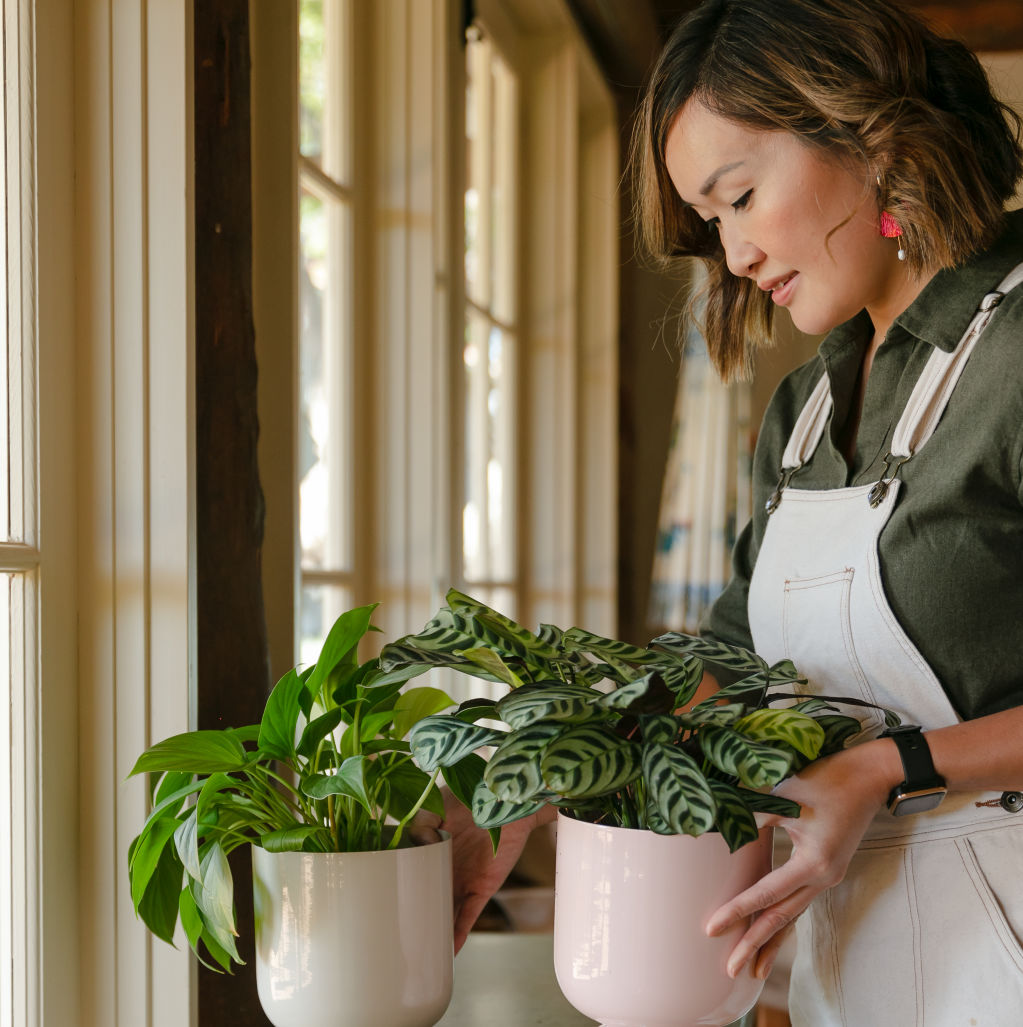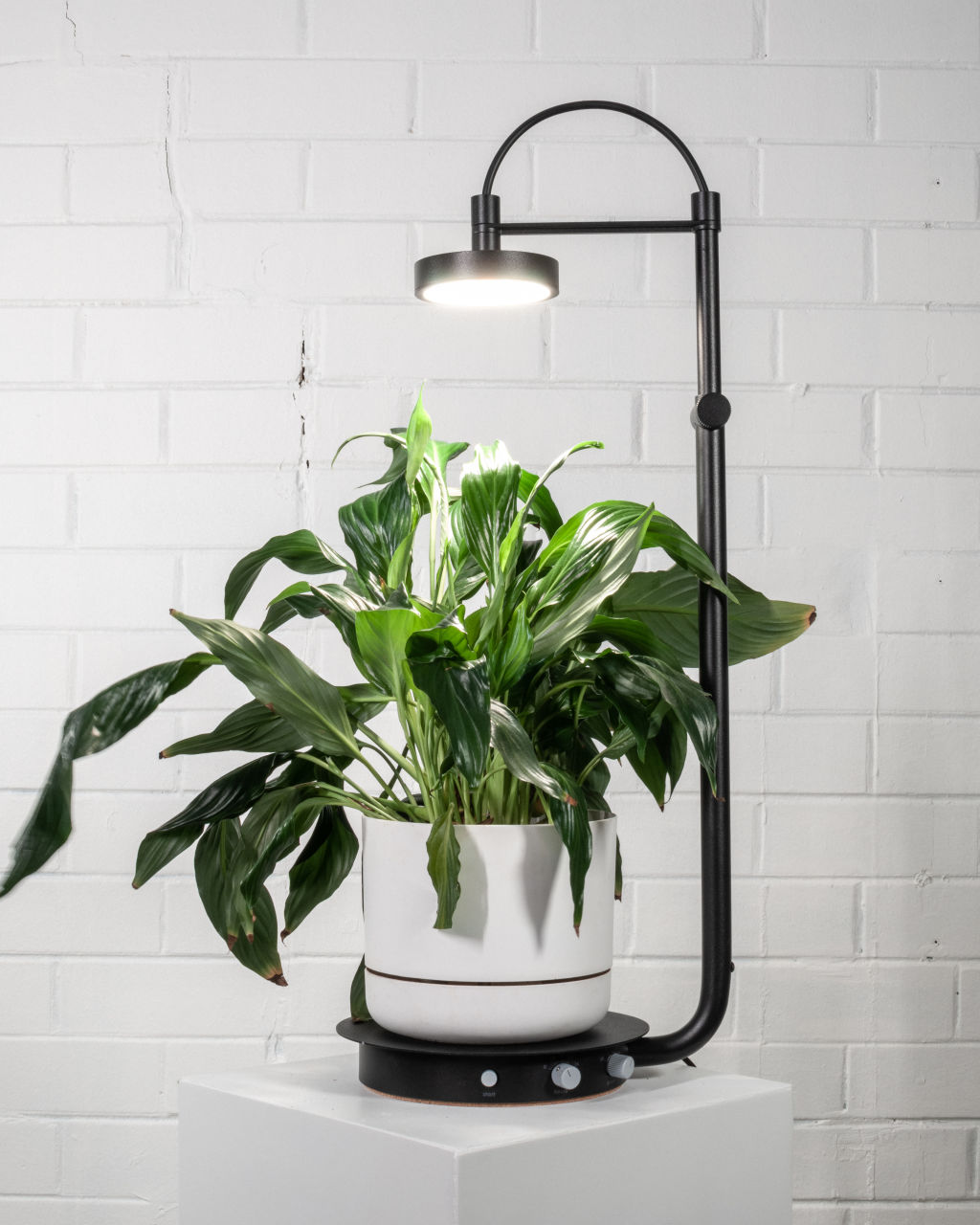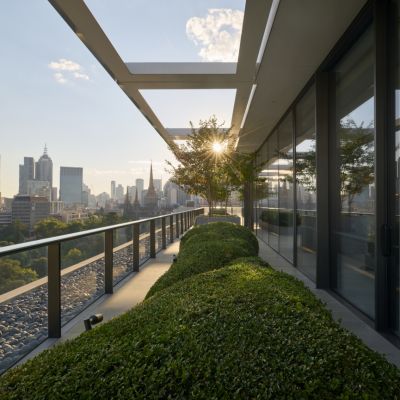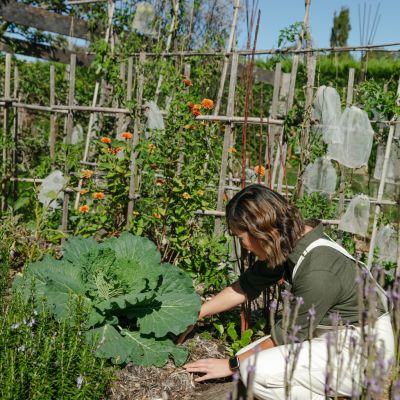Got houseplants? Here are a few tools that will help them flourish

Indoor plants have this wonderful ability to breathe life into a space. While caring for them is relatively simple, there are ways to make it even easier.
Let there be light
If rooms lack natural light, growing plants is typically discouraged. Plants need light for growth, and without it, they wither and die.
However, grow lights offer a solution. These specialised light sources act as substitutes for natural sunlight.
Once upon a time, grow lights were exclusively used by hydroponic growers to cultivate crops indoors.

These old lights, often large panels or battens, emitted red and blue light crucial for supporting and promoting plant growth. However, they also cast unattractive purple tones on plants. While effective for commercial purposes, they hardly fitted the aesthetic of our homes.
Thankfully, there have been significant advances in this space, and there are now options worthy of display in your home.
Most lights are full-spectrum and emit a white light, which is much more pleasant than purple hues.
Additional features may include built-in timers, adjustable heads and dimming modes. There are many designs and price points for any budget.
What to shop:
Indoor Halo Grow Light by The Urban Jungle
Full Spectum LED Grow Light by Gathera
Support network
Some indoor plants, such as Monstera, Anthurium, Philodendron, Epipremnum and Scindapsus, love to climb, using their aerial roots to cling to surfaces and make their way up, as they would scale a tree in their native rainforest habitat.
Without a surface to climb, they may trail or develop a lean as they grow top-heavy. You can use garden stakes to keep them upright, but if you really want to show your support, give them a moss pole.


Traditionally, a moss pole is crafted from a structure, such as a PVC pipe or wooden dowel, wrapped in Sphagnum moss and held together with coated wire mesh.
This pole is anchored in the potting mix, with the plant secured to it using garden ties. Eventually, the aerial roots grow into the moss pole, facilitating climbing, which leads to healthier growth and larger foliage.
Nowadays, you can find variations such as Propsticks, which can be filled with Sphagnum moss or other growing media, like coco chips or orchid bark.
What to shop:
Propstick Pro by Grow Vertical
Flo Plant Stake by Secateur Me Baby
Toolbox talk
The saying, “the right tools make light work” rings true for indoor plant care. A good pair of secateurs is invaluable for tasks like pruning, shaping, removing dead or dying stems and leaves, and slicing through roots when repotting.
Invest in quality as it’s worth splurging on tools that last. Japanese tools are my personal favourites.
Other items to include in your toolbox include a small tarp or reusable potting mat, hand trowel, watering can, organic insecticide and fertiliser.
What to shop:
Compact Secateurs by Shokunin Store
Bartley Burbler 1.1L Watering Can by Haws
Reusable Potting Mat by We The Wild
Tammy Huynh is a horticulturist, presenter on Gardening Australia and the owner of Leaf an Impression.
We recommend
We thought you might like
States
Capital Cities
Capital Cities - Rentals
Popular Areas
Allhomes
More










